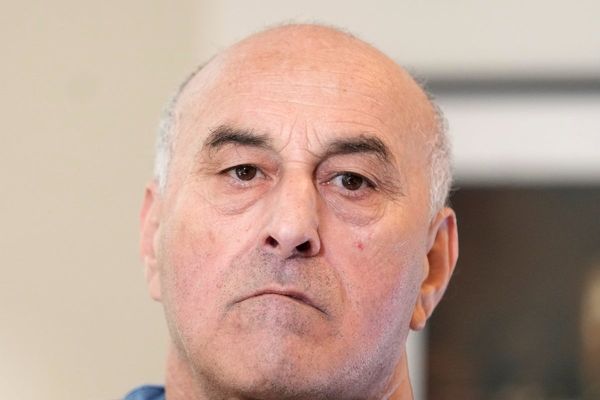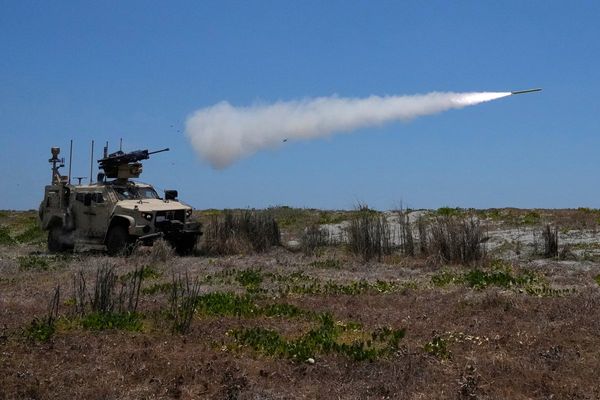The first main hearing of the trial of four Croatian Air Force pilots who are accused of firing rockets at Serb refugee columns on a road near Bosanski Petrovac and Bosnia and Herzegovina began on Friday in the War Crimes Department of the High Court of Belgrade.
The accused pilots will be tried in absentia, given that they have been unavailable to Serbian judicial authorities since the beginning of the investigation in 2021.
All of Zdenko Radulj, 70, Željko Jelenić, 69, Vladimir Mikac, 68, and Danijel Borović, 65, are accused by Serbia of carrying out the order to fire the rockets at the refugee convoys from the Republic of Serbian Krajina (RSK) on the Petrovac and Prijedor roads on 7 and 8 August, 1995.
13 people were killed in the shelling of the columns, six of whom were children under the age of 13. Some two dozen others were wounded.
The shelling, dubbed “Operation Storm” came during the heat of the Croatian war of independence which took place between March 1991 and November 1995.
The conflict was ignited after a referendum on independence, which saw significant boycott participation from Croatian Serbs. On 25 June, 1991, the Croatian parliament took the decisive step of officially declaring independence.
In response, the Republic of Serb Krajina (RSK) announced its intention to break away from Croatia and align itself with the Republic of Serbia, a move that the Croatian government labelled as insurrection.
Armed forces and paramilitaries from the RSK began expelling Croats and other non-Serbs from territories under their control. Simultaneously, Serbs residing in Croatian towns, particularly those near combat zones, faced numerous instances of harassment and violence.
On 4 August, 1995, the Croatian Army, in collaboration with the 5th Corps of the Army of the Republic of Bosnia and Herzegovina, initiated Operation Storm aimed at reclaiming occupied Croatian territories and ending the siege of the Bosnian city of Bihać, near the Croatian border.
This military action forced approximately 200,000 Serbs to flee towards Serbia. As columns of Serb civilians made their way through the town of Dvor, they came under consistent assault from artillery and small arms fire.
On 7 August, two MiG-21 – Soviet-era fighter jets – aircraft from the Croatian Air Force launched multiple rockets at the refugee convoys on Petrovac road near Bosanski Petrovac, resulting in the deaths of nine civilians and injuries to over 50 others, including four children.
The following day, on 8 August, another refugee convoy was targeted in a shelling incident near the village of Svodna, also leading to civilian casualties.
Human rights groups such as Amnesty International and the Human Rights Watch condemned the attacks and abuses carried out during the operation.
Tense relations between the Balkan neighbours
The two Balkan countries, who share a 241 km border have had tense relations for some time.
Recently, Tonino Picula of the Social Democratic Party of Croatia, and the rapporteur of the European Parliament for Serbia, was not warmly welcomed in a visit to Belgrade. Serbian President Aleksandar Vučić did not want to meet with him, but other state officials did.
Picula recently criticised the Serbian government noting that it had failed to respond to the demands of protesters in recent months. "We can say that Serbia is in an undeclared state of emergency," said Picula speaking to Croatian media.
"He has a permanent state of emergency in his head, and it was declared a long time ago. And with many people in Croatia," said Vučić in Vlasotince, during a visit to the Toplički and Jablanički districts.
Last week, Serbia’s Foreign Ministry recalled its ambassador to Croatia, Jelena Milić. Milić had been at the centre of attention for weeks and under attack by local media. Croatian media also speculated that Belgrade recalled its ambassador because it knew that otherwise she would be declared persona non grata by Croatian authorities.
The cold relations are only highlighted by the few state visits shared between the leaders of the two countries. Croatian Prime Minister Andrej Plenković has only visited Serbia once since becoming prime minister in 2016, and it wasn’t an official state visit.
In 2023, Plenković visited the city of Subotica, at the invitation of the Croatian National Council in Serbia (HNV). There he briefly met with the then Prime Minister Ana Brnabić, but did not meet with Vučić.
The last time Aleksandar Vučić was in Zagreb was in 2018 at the invitation of the then Croatian President Kolinda Grabar Kitarović.
In July 2022, Croatia banned the Serbian leader from a private visit to Jasenovac – a memorial to the victims of the Ustasha concentration camp from World War II – where Serbs, Jews and Romas were killed.
The Croatian leadership saw Vučić's trip as a provocation and demanded future visits be announced officially. Serbia’s Foreign Ministry responded with a note of protest, which was not well received by Croatia’s Embassy.







